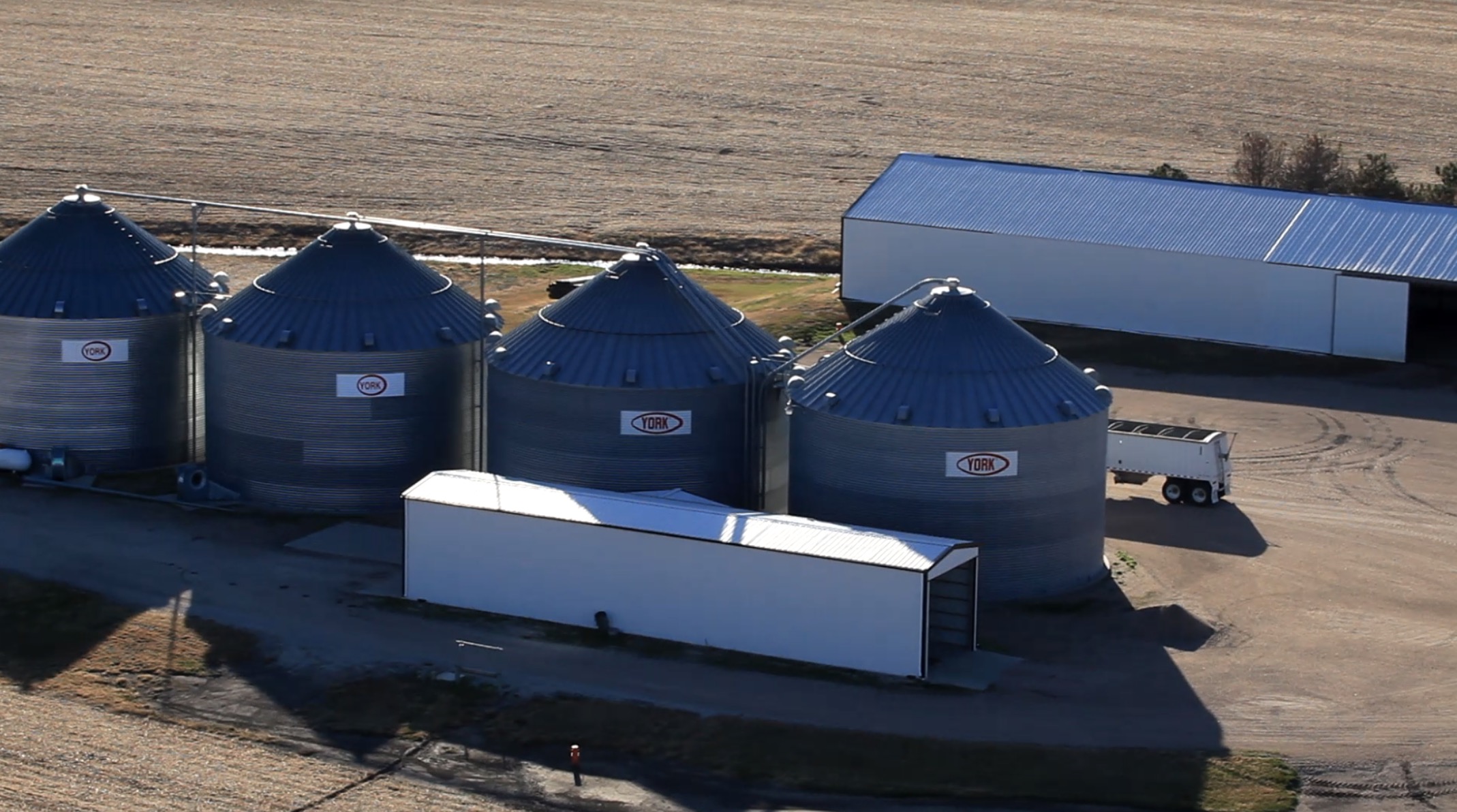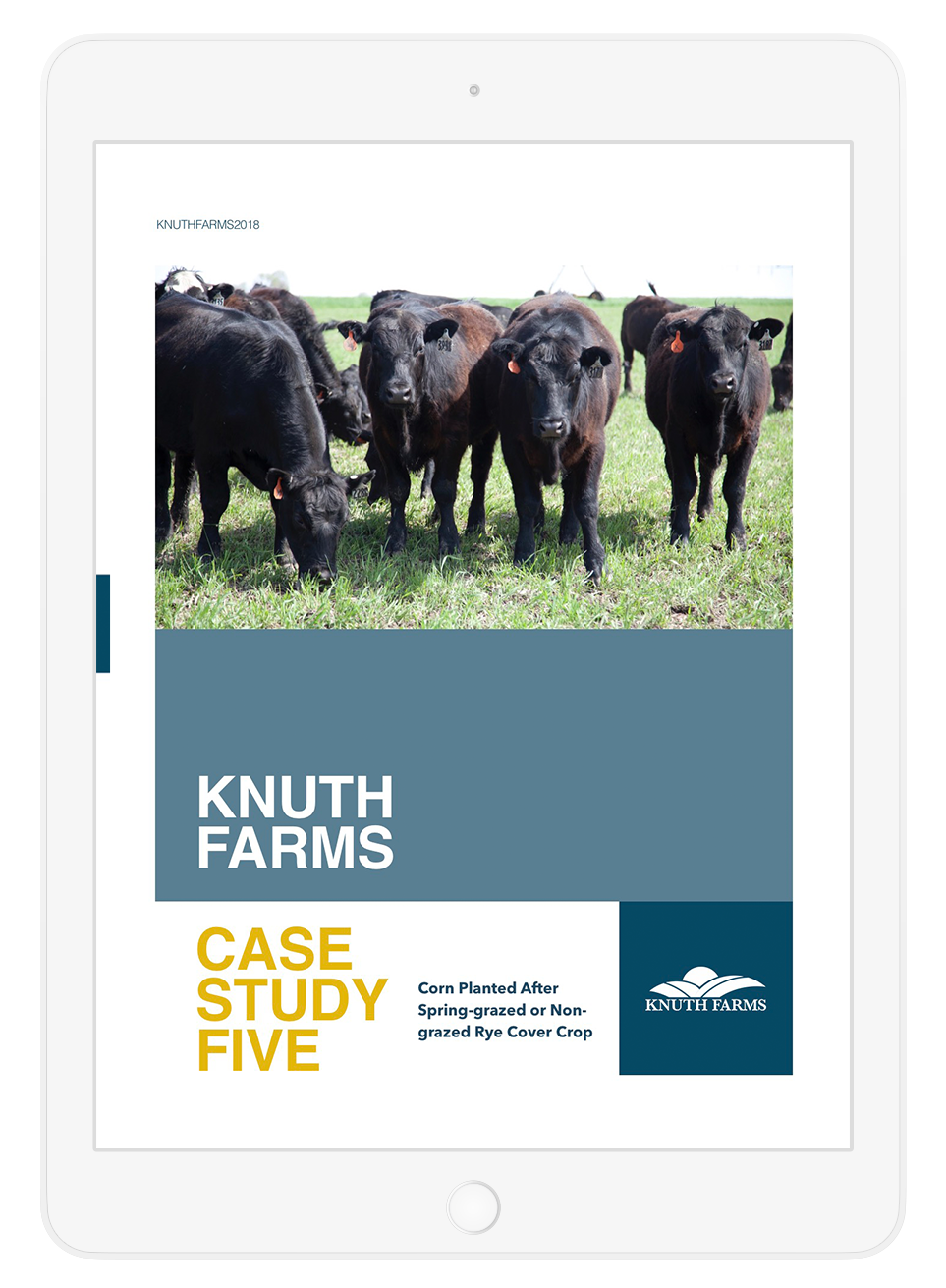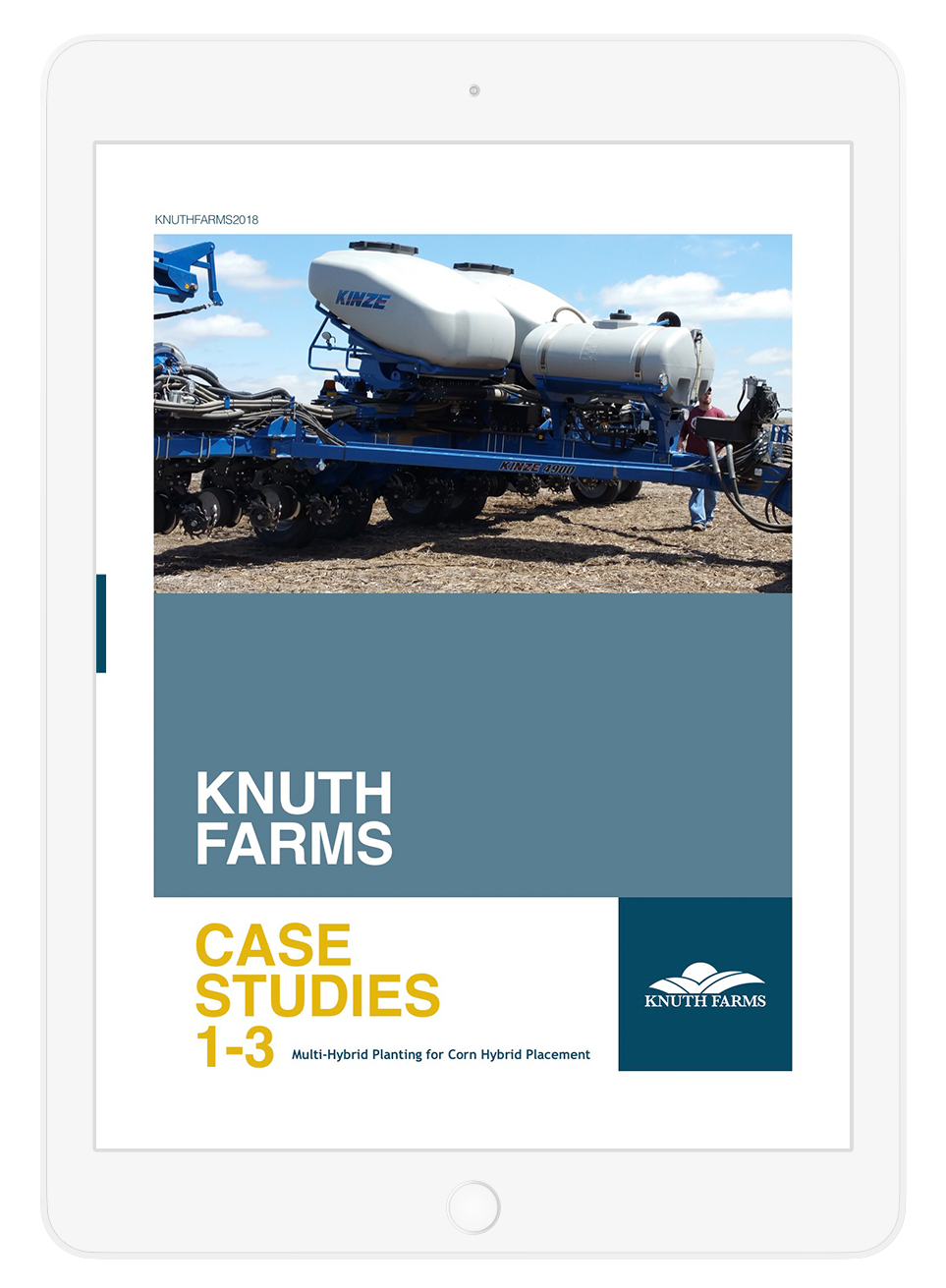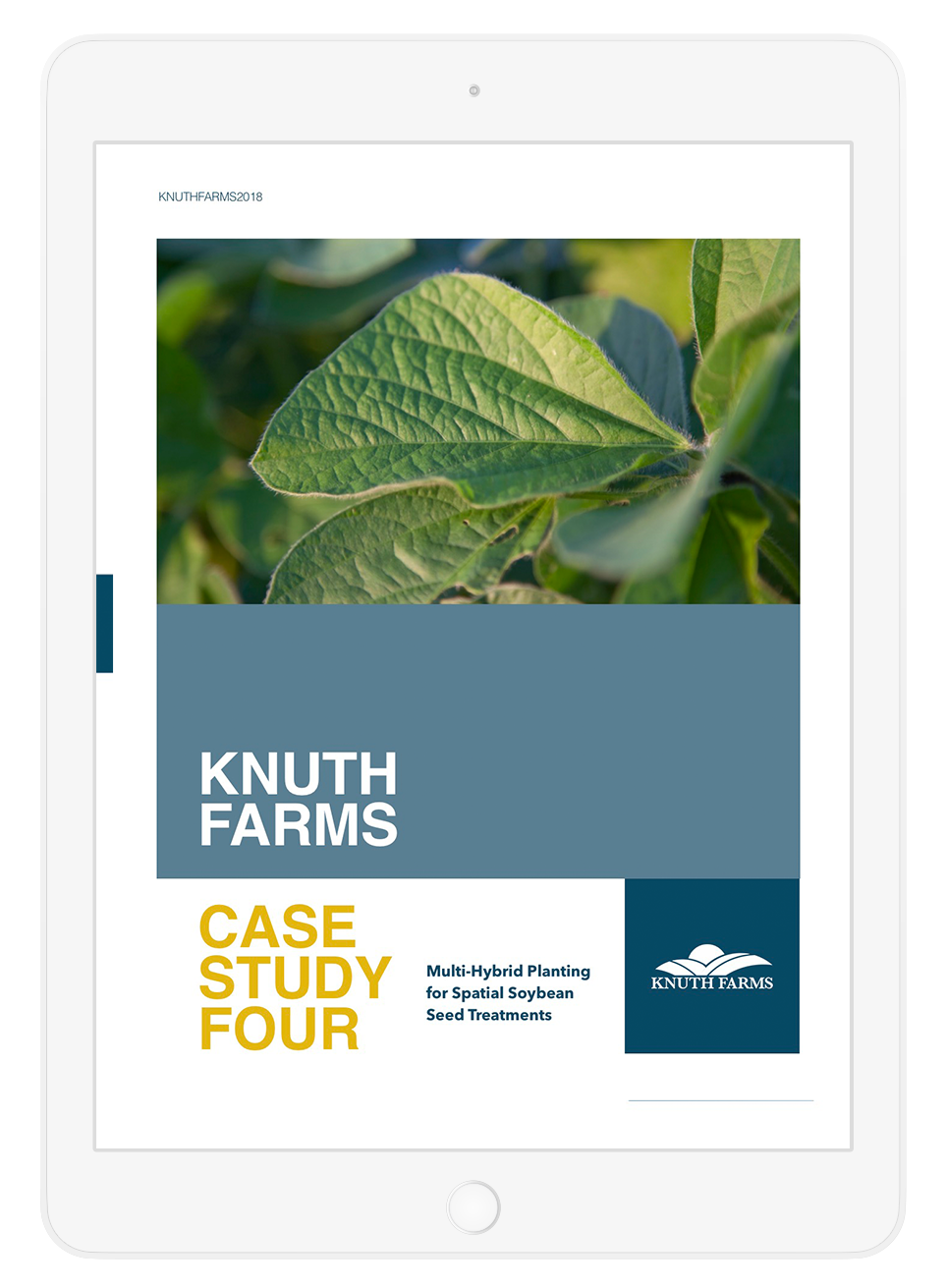Impacting Agriculture through innovation and teamwork

Farm studies are a partnership between Extension and producers to apply a scientific approach to critical questions. Farm studies take a known problem or hypothesis and provide technical assistance in setting up, implementing and analyzing replicated trials. At Knuth Farms we are proud to be in or have participated in 7 studies since 2013 and have leveraged that experience to make it easy for extension agents and Universities to work with our operation. We understand the importance of farm studies and value the opportunity to play a collaborative role impacting Agriculture through innovation and teamwork. Contact us for your next on-farm research project.
GPS and GIS have greatly enhanced the ability of site-specific crop management as well as provide the opportunity to track, collect and analyze spatial data for on-farm research. At Knuth Farms we actively pursue testing new technologies, that have the potential to affect our productivity, profitability, and sustainability. Partnering with industry and educators mitigates the risks involved with testing and accelerates learning and adoption of emerging Ag technology. Do you have new or beta stage technology? Bring us your technology to test in a real-world environment.

Capturing Value In Cropping Systems Using Cattle – Corn planting after spring grazing.
The purpose is to develop and support implementation of beef production systems that optimize feed resource, use, natural resource conservation, and producer success in Nebraska through improved management of perennial grasslands and systems of integrated crop-beef cattle production. Two field locations were on this on-farm research using 202.6 acres on the farm.
Results for 2017 showed no significant difference between grazing treatments in either of the two fields for – average daily gain or total gain of cattle. Yield also was not negatively impacted by grazing cattle in the spring.
2.88 – 3.6lb/d
Cattle Average Daily Gain
0.23 – 1.64ton/ac
Average Biomass At Planting Across Treatments
190 – 211per/ac
Average Yield Across Treatments
0.95 – 2hd/ac
Stocking Rate Average Across Fields

To study the effects of multi-hybrid planting in predetermined, sub-field management zones based on both the characteristics of the zone and the hybrid for the purpose of optimizing production by planting a drought tolerant trait (defensive hybrid) in lower water retention soils and a high yielding trait (offensive hybrid) in areas of adequate moisture retention.
Results for 2017 showed profitability is not always connected with highest yield results. Price per bag of seed plays an important role in profitability even in fields where the offensive hybrid yielded more.
D-214 O-227
In Irrigated Field Offensive Hybrid yielded higher bu/ac
28000
Dryland on 30” row spacing
181
In Dry Land Fields Offensive and Defensive Hybrids yielded with the same average bu/ac
31000
Population Irrigated on 30” row spacing

To study the effects of multi-hybrid planting in predetermined, sub-field management zones based on both the characteristics of the zone and the hybrid for the purpose of optimizing production by planting a drought tolerant trait (defensive hybrid) in lower water retention soils and a high yielding trait (offensive hybrid) in areas of adequate moisture retention.
Results for 2017 showed profitability is not always connected with highest yield results. Price per bag of seed plays an important role in profitability even in fields where the offensive hybrid yielded more.
Mary E Drewnoski
Beef Systems Specialist at the University of Nebraska–Lincoln Animal Science
